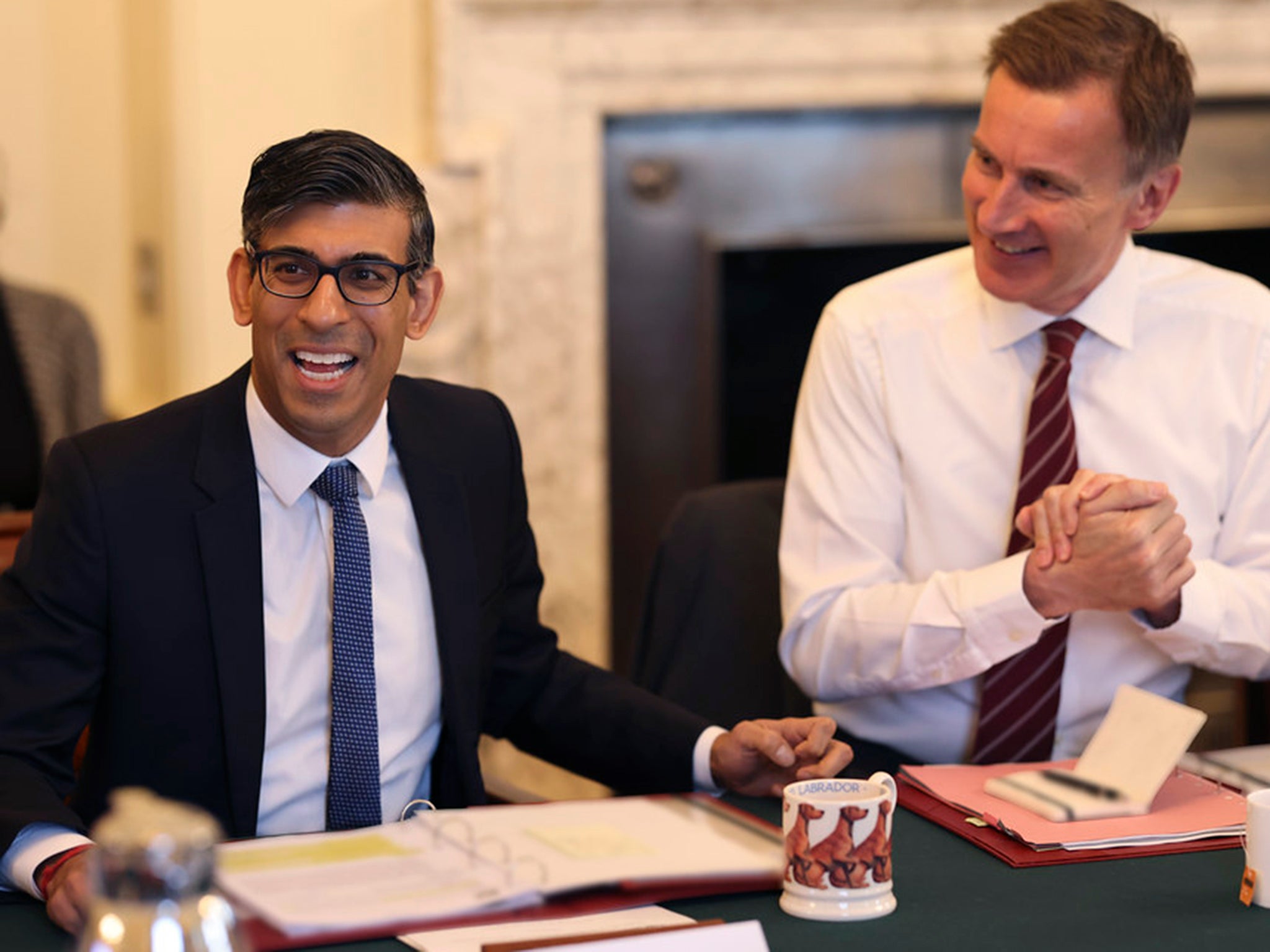The Conservative Party seems to have run out of ideas. Anonymous voices claiming to speak on its behalf have said in the days since its disastrous double defeat in the Mid Bedfordshire and Tamworth by-elections that Rishi Sunak and Jeremy Hunt are considering tax cuts.
It has been suggested that the prime minister and chancellor might cut higher-rate income tax before the general election – or that they might put a promise to cut stamp duty or inheritance tax in the Conservative manifesto.
If these are the only responses to an electoral setback that the great minds in the party can turn to, the Tories deserve to lose as badly as the by-elections and current opinion polls suggest they are likely to do. “Tax cuts” are a reflex that was taken to a destructive extreme by Liz Truss and Kwasi Kwarteng, who proposed huge unfunded tax cuts that would have blown the public finances apart, and from which they were forced to retreat in such disarray that they both lost their jobs in record time.
That humiliation was only 12 months ago, and yet some in the party refuse to learn, wanting to return to the same theme, only more carefully this time. At one level, this instinct is entirely understandable. Taxes are at a peacetime record high; no one likes paying tax; and the Conservative Party is historically the party that puts a higher priority on tax cuts, while Labour tends to emphasise better public services.
At another level, the rush to cut taxes is utterly irresponsible. The reason taxes went up was to save jobs during lockdowns that the British people strongly supported during the coronavirus pandemic. The British people may not like it much now that the bills are being presented, but they knew that the £400bn borrowed by Mr Sunak as chancellor was not free money, and that there would be sacrifices to come.
People do not like high taxes, but they like even less politicians who pretend that they can be magicked away – especially if the prospect of unsustainable tax cuts causes the financial markets to melt down. Ms Truss’s experiment may be over, but the voters are going to be rightly suspicious of any politician offering them tax cuts without saying how they will be paid for.
The voters know, because trusted independent analysts such as the Institute for Fiscal Studies tell them, that the public finances are still in a terrible state. The IFS says that there is no scope for reducing the burden of taxation in the short to medium term without deep public spending cuts – cuts that the voters would find even more unacceptable than taxes continuing at current levels.
Mr Sunak and Mr Hunt have even less room for manoeuvre because Sir Keir Starmer, the Labour leader, and Rachel Reeves, the shadow chancellor, are being reasonably straight with the electorate. They say they do not want to raise taxes, apart from closing a few of what they call “loopholes”, but equally they refuse to make unfunded spending promises.
That is approximately the optimum fiscal position, and the Conservatives cannot stray too far from it. There would be nothing wrong with Mr Sunak and Mr Hunt indicating, for example, that they would like to cut stamp duty for modest homes as an aspiration after the election, but it would be a mistake to offer anything that could be characterised as “tax cuts for the rich”, and worse actually to cut taxes before the election.
Tax cuts are unaffordable before any possible general election date, and Mr Sunak and Mr Hunt will lose votes rather than gain them if they take that risk with the public finances.




Join our commenting forum
Join thought-provoking conversations, follow other Independent readers and see their replies
Comments